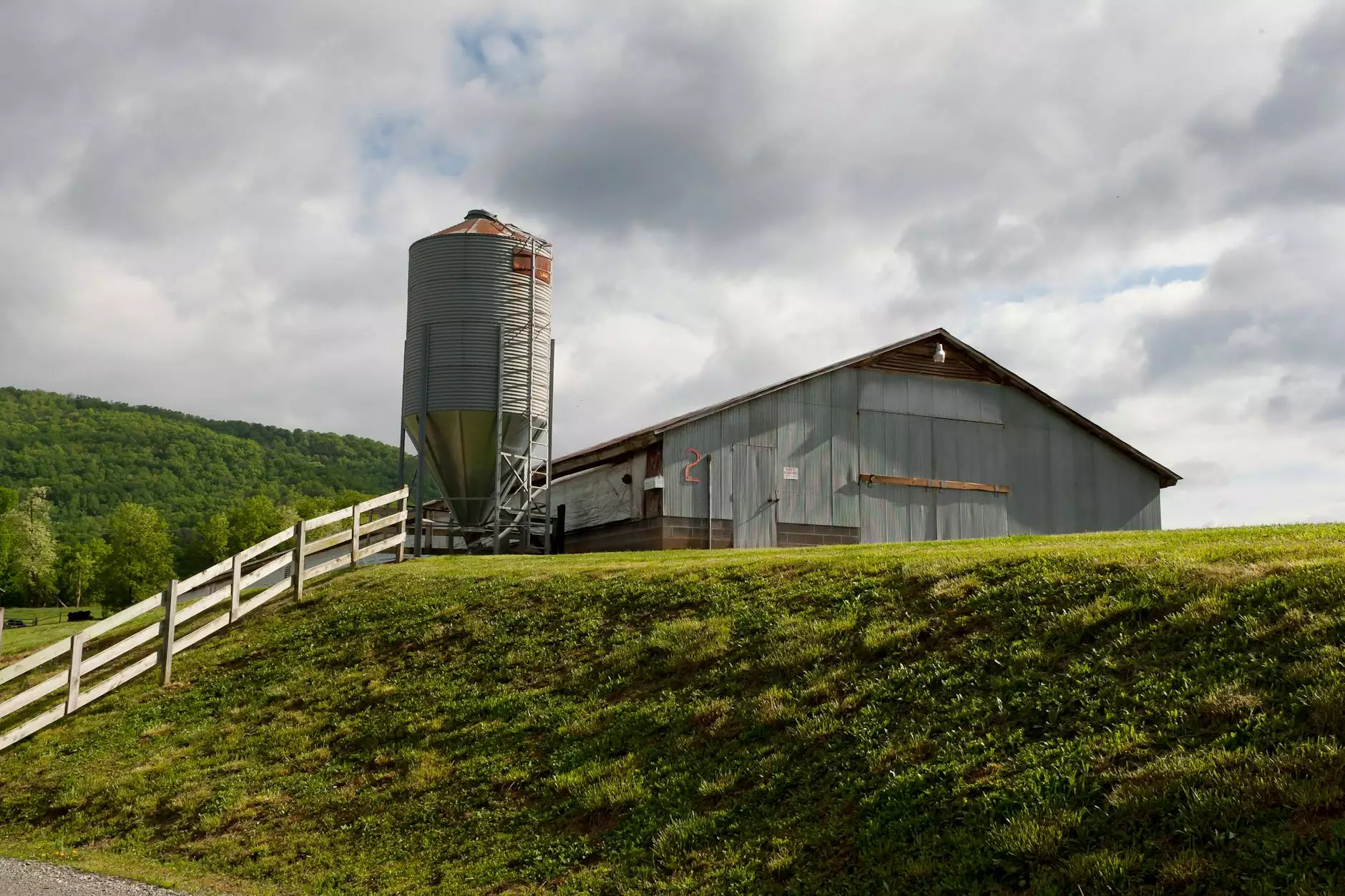The Essential Role of Silo Grain in Modern Agriculture

In the ever-evolving world of agriculture, effective management of crops and grains is paramount to maximizing productivity. One crucial element in this equation is silo grain storage. Silo systems not only provide essential benefits for farmers but also enhance the efficiency of grain management strategies. This article dives deep into the significance of silo grain, its benefits, maintenance, and its impact on farming operations.
Understanding the Concept of Silo Grain
A silo is a structure used to store bulk materials, primarily grains. The term "silo grain" refers to the grains stored within these systems, which are vital in sustaining agricultural production. The origins of silo systems date back to ancient civilizations, which utilized rudimentary forms to protect their grains. Today, modern silos are sophisticated structures designed for optimizing grain storage.
The Historical Context
- Ancient Silos: Early forms were made of mud or stone, primarily used to protect grains from pests and weather.
- Evolution: Came into modern designs to enhance durability, efficiency, and safety.
The Importance of Silo Grain in Agriculture
With the global population continually rising, the importance of efficient grain storage cannot be overstated. Here are some key reasons why silo grain storage is vital:
1. Prolonged Shelf Life
By storing grains in silos, farmers can significantly extend the shelf life of their products. The controlled environment of modern silos keeps grains safe from pests, mold, and moisture.
2. Quality Preservation
Maintaining the quality of stored grains is crucial. Silos help preserve the nutritional value of grains by minimizing exposure to external elements such as sunlight and humidity.
3. Improved Efficiency
The bulk storage capability of silos allows for quicker loading and unloading times, reducing labor costs and improving workflow on the farm.
4. Cost-Effectiveness
Investing in a silo can lead to significant cost savings over time. By reducing spoilage and wastage, farmers can maximize their profits while ensuring a steady supply of grains.
The Types of Silo Systems Used for Silo Grain Storage
Understanding the different types of silos is essential for farmers looking to optimize their grain storage and management. Here are several common types:
1. Tower Silos
Tower silos are cylindrical structures that can be made from concrete or metal. Their height allows for efficient grain compaction, which is essential for long-term storage.
2. Bunker Silos
Bunker silos are typically open structures with walls made of concrete. They are effective for storing large quantities of grain and are often used for temporary storage.
3. Bag Silos
These are flexible and portable solutions for grain storage, making them popular among smaller farms that need versatility.
4. Horizontal Silos
Horizontal silos are low-profile structures, ideal for farms where height is an issue. They allow for easy access and management of stored grains.
Optimal Practices for Managing Silo Grain
1. Regular Monitoring and Maintenance
Consistent monitoring of silo conditions is essential for maintaining grain quality. This includes checking for moisture levels, temperature, and the presence of pests. Farmers should invest in:
- Temperature sensors: For ensuring optimal conditions.
- Moisture meters: To track moisture levels in the stored grains.
2. Efficient Loading and Unloading
To maximize the efficiency of silo systems, farmers must develop streamlined processes for loading and unloading grain. This can reduce labor costs and minimize grain handling time.
3. Pest Management Strategies
Implementing pest control measures is crucial. This may include:
- Regular inspections: To detect and address pest problems early.
- Preventive treatments: Such as fumigation and pesticide applications.
Benefits of Investing in Silo Grain Storage Solutions
For modern farmers, the initial investment in a silo can seem daunting. However, the long-term benefits far outweigh the costs. Let’s explore how investing in silo systems can transform farming operations:
1. Enhanced Crop Management
With proper storage, farmers can manage their crop yields more effectively, storing grains during peak harvest and selling them during off-peak periods, maximizing profits.
2. Increased Production Capability
The ability to store larger quantities of grain allows farms to scale production and respond to market demands more effectively. This flexibility is valuable in today’s dynamic agricultural landscape.
3. Environmental Benefits
Efficient grain storage can reduce waste and promote sustainable farming practices. Proper management decreases the need for excessive harvesting and contributes to environmental conservation.
4. Building Community and Support
Farmers can collaborate with one another and share resources such as silo systems, creating a more supportive agricultural community which can lead to shared knowledge and practices that benefit all involved.
The Future of Silo Grain Storage and Technology
As technology continues to advance, the future of silo grain storage looks promising. Innovations in agricultural technology are set to enhance grain management further:
1. Automated Monitoring Systems
Integration of IoT devices will enable farmers to monitor grain conditions remotely, providing real-time data on moisture levels and temperature.
2. Smart Silos
Emerging technologies will transform traditional silos into smart systems that optimize storage conditions automatically, ensuring grains are kept in the best possible environment.
3. Data Analytics in Grain Management
Utilizing data analytics tools will help farmers make informed decisions based on trends and patterns in grain storage, leading to better crop management and higher yields.
Conclusion
In conclusion, the role of silo grain in agriculture is undeniably vital. From enhancing crop management to preserving grain quality, silos are fundamental to modern farming operations. As technology evolves, so too will the methods and practices surrounding silo grain storage, ensuring that farmers remain equipped to meet the demands of a growing world.
By investing in effective silo storage systems and employing best practices, farmers can secure their livelihoods while contributing to the sustainability of agriculture. It is clear that silo grain storage solutions are not merely a choice; they are a necessity for successful farming in the 21st century.









